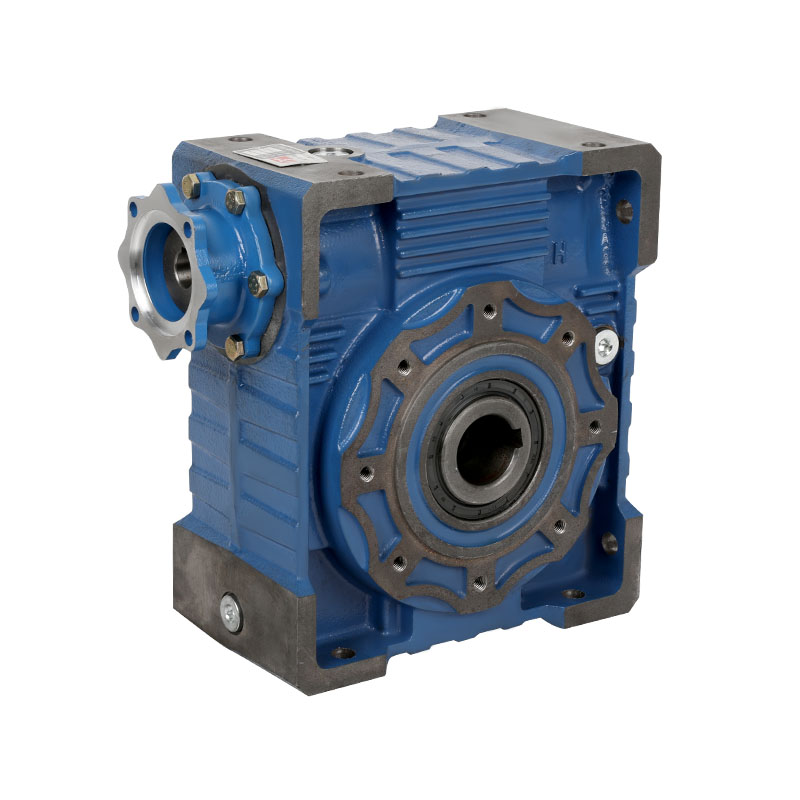In the design of RV (Rotary Vector) worm gear reducers, the selection of materials for heat dissipation plays a crucial role in ensuring the efficiency, durability, and reliability of the gear system. Here are some key advantages of careful material selection for heat dissipation in RV worm gear design:
Metals with high thermal conductivity, such as aluminum or copper alloys, are often used in the housing or gear components to dissipate heat more effectively.Improved thermal conductivity helps in quickly transferring heat away from the gear surfaces, preventing overheating and reducing the risk of thermal expansion, which can lead to gear misalignment or wear.
Heat-resistant materials, such as specific grades of steel or bronze, are used for the worm and worm wheel to withstand high operating temperatures without losing mechanical properties.The use of heat-resistant materials ensures that the gear components maintain their structural integrity over time, leading to a longer operational lifespan and reduced maintenance costs.
Certain materials, like composite materials or surface coatings, can improve the retention of lubricants, which are essential for reducing friction and heat generation.Better lubrication retention minimizes direct metal-to-metal contact, reducing frictional heat, and ensuring consistent performance under varying loads and speeds.

Lightweight materials such as aluminum alloys are often chosen for the gear housing.Lighter materials not only contribute to the overall efficiency of the system by reducing the load but also aid in faster heat dissipation, as they typically have better surface-area-to-mass ratios for cooling.
The choice of cost-effective materials that balance thermal properties with mechanical strength, such as certain aluminum or steel alloys.By optimizing the material cost without compromising on thermal performance, manufacturers can offer high-performance RV worm gear reducers at competitive prices.
Materials like stainless steel or specially coated metals are selected for their resistance to corrosion, especially in environments where moisture or chemicals may be present.Corrosion-resistant materials prevent degradation over time, which could otherwise compromise heat dissipation and lead to failure in the gear system.
The use of composite materials or noise-dampening metals in non-critical parts of the gear system.These materials not only manage heat effectively but also contribute to reducing the operational noise of the worm gear reducer by absorbing vibrations and minimizing noise generation.
Materials that can withstand extreme environmental conditions, such as high or low temperatures.This ensures that the gear system remains operational and efficient in a wide range of temperatures, making it suitable for diverse applications.
Selecting the appropriate materials for heat dissipation in RV worm gear reducers can lead to significant performance enhancements, including better thermal management, increased durability, and overall efficiency, all of which contribute to the gear system's reliability and lifespan.

 English
English русский
русский bahasa Indonesia
bahasa Indonesia
